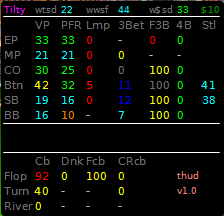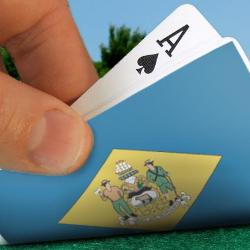Alex Dreyfus Looks To Give Poker Mass Audience Appeal

Alexandre Dreyfus is fast becoming one of the poker industry’s most influential personalities, with the French gaming entrepreneur responsible for the Global Poker Index, American and European Poker Awards, as well as a number of poker conferences held each year across the globe. One of Dreyfus’ stated goals is to elevate the status of poker to that of a sport, whilst removing the negative stigmas associated with the game, and as he recently explained :
“While there are more than 100 million casual poker fans in the world, the game suffers from a tainted image that doesn’t reflect its reality. My vision is to change that image and to make people see that not only is poker a game but it’s a sport and great proposition for entertainment too.”
In line with these aims, over the past few days Dreyfus has turned his attention to one of the most contentious issues in the whole of iPoker, namely the prolific use of the heads-up displays, or HUDs, by online cash grinders.
iPoker All About The Numbers
Whereas live poker relies on a player’s reading ability, as well as their mathematical skills, to gain an advantage over an opponent, online the picture is a lot different. Instead, online professionals rely upon the statistics generated by their HUDs to give intricate details about an opponent’s playing habits, leaving little space for the human element which once attracted recreational players to the game. Even the world’s most successful online cash player, Patrik Antonius, recently confessed to no longer playing Hold’em or PLO online anymore, and as he explains:
“Nowadays players use software that gives them so much information and so much data that it has become more of a game of numbers.. the players today know what they’re doing. They are basing their play on what the software tells them to do so it feels like you’re playing against a computer these days. If you don’t use poker software it’s not a fair game anymore.”
HUDs Scare Amateurs Away
Another negative implication of HUDs, and one which more directly concerns Dreyfus, is that recreational players watching their use on media such as Twitch are likely to feel confused or intimidated by the vast amount of data filling the screen, and so might decide against giving the game a try themselves. Needless to say, such a reaction undoes the considerable efforts made to entice recreational players into the game, and elaborating further in an article on CalvinAyre.com, Dreyfus said:
“I don’t believe that it’s a good thing to highlight the use of HUDs for a number of reasons. The image of a grinder using data analysis to make his decisions is not the experience we want to sell. We want to sell entertainment, and a recreational experience.”
Somerville Praised For Intuitive Game
One player who seems to represent the ideal envisioned by Dreyfus is online Twitch sensation Jason Somerville, who set a record recently for the largest online poker audience whilst playing a PokerStars World Championship of Online Poker (WCOOP) tournament. A huge 37,000 people tuned in to watch him play, and not just because of his entertaining manner, according to Dreyfus, but also because of his intuitive, HUD-free style of play. In addition, Somerville plays just one tournament at a time, which adds further to producing a clean and uncomplicated screen view which is aesthetically pleasing on the eye. In fact, Dreyfus had an important suggestion to make to the world’s biggest poker room, PokerStars, namely that the site should not allow its sponsored pros to broadcast on live streaming channels while using tracking software.
Ban HUDs Altogether
However, Alex Dreyfus did not stop his attack on HUDs there, and the GPI CEO said he envisages a time when all tracking software are banned from online poker altogether. According to Dreyfus, this would help readdress the imbalance that currently exists between online grinders and recreational players. Failing that, Dreyfus suggests that some type of icon or sign should be used to show just which players are actually employing their use during a game. As he explains; “It’s technically possible to do this, and it should be done to broaden the awareness of the other players at the table.”










